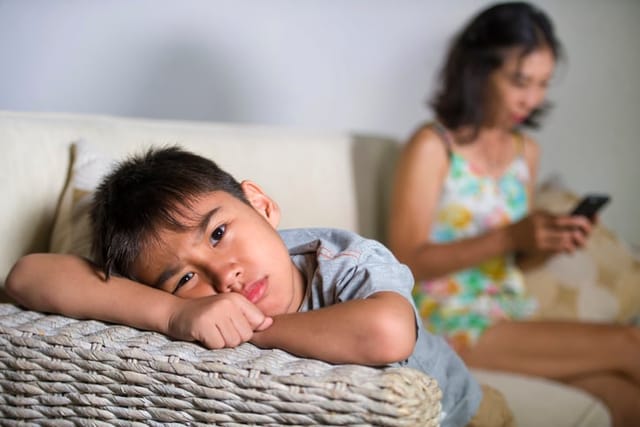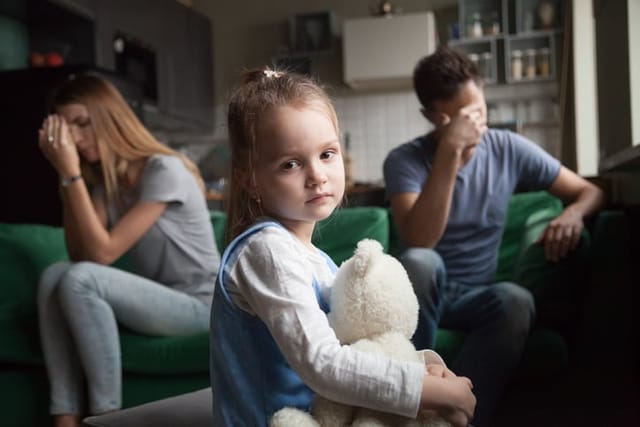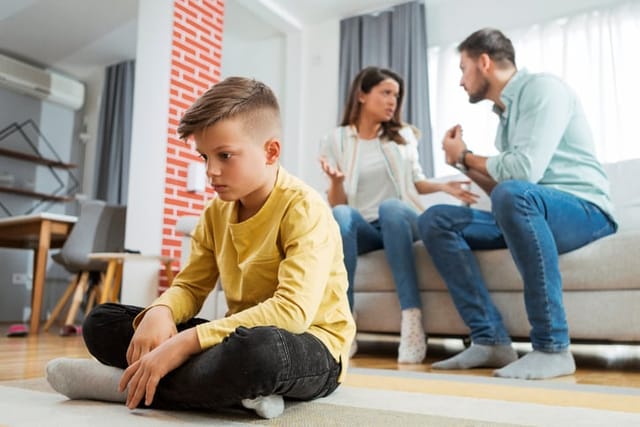It’s unnerving to meet someone who doesn’t have any empathy for others. You might wonder what made them that way. The truth is, that the root cause of their empathy could originate in childhood. With this in mind, here are 15 childhood experiences that people who lack empathy probably experienced. It explains a lot and can help you better understand someone with zero empathy so you can have greater empathy towards them.
1. They were left alone at home a lot.

Neglect is so damaging to children in various ways, and it can cause them to lack empathy. Since kids who are neglected or isolated are forced to fend for themselves and their emotional needs aren’t met, this makes it difficult for them to develop emotionally and socially.
You may also like: How A Narcissist Acts When They Can’t Fool You Anymore
2. They were constantly put down.
If someone was always criticized and belittled as a child, this messed with their emotions. They probably grew up thinking that they weren’t good enough. The harsh feedback they got from others made them push down their feelings as a method of self-protection.
Don’t miss out – follow Bolde for exclusive content daily
3. They were bullied.

There’s a link between a lack of empathy and being bullied. When children are bullied, their negative social relationships—and the lack of socialization they experience as a result—can lead to them growing up without being in tune with others’ feelings or knowing how to interact with others in a healthy way.
You may also like: 16 Signs You Didn’t Get Enough Affection As A Child
4. They didn’t see people lead with empathy.

Growing up in an environment in which adults don’t show empathy can cause children to lack it themselves. It makes sense because children learn from their parents and they mimic their behaviors. Also, parents play a big role in children’s social and emotional development.
Don’t miss out – follow Bolde for exclusive content daily
5. They were exposed to domestic violence.
Children who had to deal with domestic violence in the home were exposed to great amounts of stress growing up. This can damage their self-esteem and cause them to lack empathy. Studies have found that severe maltreatment during childhood is linked to lower emotional empathy.
You may also like: 18 Personality Traits Of An Unhappily Married Man
6. They didn’t have anyone who listened to their feelings.
If children always felt like no one listened to them or acknowledged and validated their feelings, it could have caused them to block out their feelings. When they don’t explore their own emotions, they’ll struggle to do so with others.
Don’t miss out – follow Bolde for exclusive content daily
7. They were exposed to too much screen time.
If young children are exposed to digital screens from an early age, this can cause them to have fewer social skills and less empathy. It reduces their emotional development. Babies are supposed to learn about emotions by looking at people’s faces. This is why limiting screen time is so important.
You may also like: Don’t Share These 15 Things With Anyone – They’re Nobody’s Business But Yours
8. They weren’t encouraged to talk about feelings.
Maybe when people who lacked empathy were children, they tried to talk about feeling sad or angry, but their parents shut them down. Or, their caregivers never taught them about their feelings. This could make them feel guilty about their emotions, and they might’ve also learned to avoid their emotions and those of others.
Don’t miss out – follow Bolde for exclusive content daily
9. They were abused.

If children were abused, they weren’t given positive, safe relationships that they could learn from. This could cause them to lack emotional intelligence and empathy as adults because they don’t know how to read what people are thinking or feeling.
You may also like: Things Narcissists Say To Shut You Down When You Confront Them
10. They were attached to a specific person who wasn’t empathetic.

It’s common for a child to attach themselves to a specific person, such as a parent. If that person isn’t empathetic, this could cause the child to start putting up emotional walls as they grow up. This will lead to empathy struggles later on.
Don’t miss out – follow Bolde for exclusive content daily
11. They struggled with anxiety or depression.
Kids who go through mental health conditions such as anxiety or depression, could experience despair that can make it difficult for them to reach other people’s emotions or understand them. It’s like they feel detached from the world around them.
You may also like: 15 Types Of People You Should Never Trust In Life
12. They experienced emotional abuse.
It’s not just physical abuse that can cause a lack of empathy in kids. If children were emotionally abused during childhood, they could lack emotional stability. This makes it challenging for them to form healthy relationships.
Don’t miss out – follow Bolde for exclusive content daily
13. They were diagnosed with a personality disorder.
If a child is diagnosed with a personality disorder such as narcissism or bipolar disorder, these can cause what’s known as empathy deficit disorder. This is when they think their needs are more important and valid than other people’s, which is a big part of lacking empathy.
You may also like: 15 Clever Phrases That Instantly Humble an Arrogant Person
14. They experienced a traumatic event.
 ©iStock/VioletaStoimenova
©iStock/VioletaStoimenova
Children who go through a traumatic event during childhood have a hyperactive amygdala. This part of the brain regulates emotions, so any trauma that interferes with it affects how children deal with their emotions. Survivors of trauma who experience post-traumatic stress disorder (PTSD) tend to show impairments in social relationships.
Don’t miss out – follow Bolde for exclusive content daily
15. They were diagnosed with a developmental disability.

Another health condition that can present with a lack of empathy is autism. This term refers to a spectrum of developmental disabilities, and one of its symptoms is a problem with social communication and interactions. People with autism sometimes experience a lack of empathy.
Enjoyed this piece? Give us a like and follow Bolde on MSN for more!











